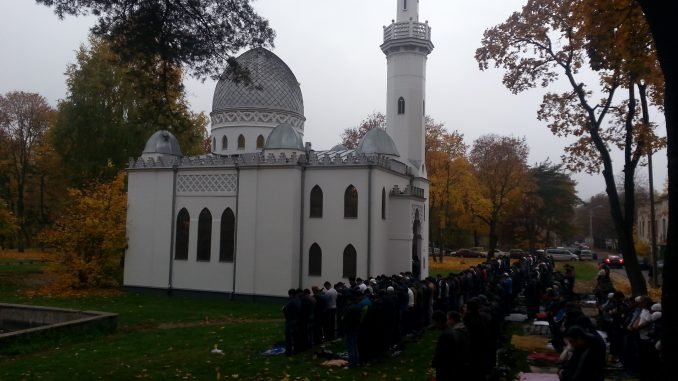
Last Saturday, as the Lithuanian Muslim Community was organizing a supper to mark the beginning of Ramadan, police officers checked identity documents of all the participants. ENAR sees such behavior of the police as racial profiling and urges to secure that there are no such discriminatory identity checks in the future. Moreover, it asks law enforcement to communicate with the community and not to persecute it.
The event was organized by the Islamic Culture and Education Centre and Tablighi Jamaat. A hundred people, among them Lithuanian Muslims and guests from Lithuania and foreign countries, participated in the event.
Police should protect, not raise tension
According to the statement released by the network fighting the racism, such checks are the first major example of systematic racial profiling in Lithuania since the Soviet era.
The organization said that such practices violated human rights and trampled with the principles of equality, while persecuting people because of what they are, their appearance or beliefs, as opposed to their actions, was against the national and international law.
“Racal profiling is offensive and alienates innocent people, creates distrust in the police,” said Sarah Isal of ENAR in the statement.
Director of the Lithuanian Human Rights Centre Birutė Sabatauskaitė also says that it is doubtful whether it was necessary to limit the human right to personal privacy in a democratic country, to humiliate and check all people coming to the Ramadan’s supper.
“Such actions are not only against the Constitution of the Republic of Lithuania, against international conventions and against the Law on Equal Opportunity, but also against the Law on Police Activities which speaks up for equality,” said Sabatauskaitė.
Muslim Community offers cooperation
Reacting to the actions of the police officers, Aleksandras Beganskas, a representative of the Islamic Culture and Education Centre, said that he understood the police officers’ duty to inspect people’s identities sometimes; however, according to him, this time, the officers exceeded their authority and acted against the Constitution, the national law and international conventions ratified by Lithuania.
Beganskas also suggests the police should cooperate and not engage in actions which, according to him, are illegal. “I believe that this is because of the lack of communication and this can be prevented by maintaining contact. It may be that sometimes we seem as a close community but this is not true. We invite all people to participate in our events, to meet with police officers and to cooperate in the future,” said Beganskas.
Discriminatory provision in police programme
In 2010, Lithuania’s Police Commissioner General ratified a long-term programme of terrorism prevention, which states that those residents of Lithuania and incoming foreigners who “profess and practice radical ideologies” pose threat. The “radical ideologies”, according to the document, include “racism, fascism and radical Islam”.
Sabatauskaitė says that terrorism should be associated with radicalism and not with some particular religion. “In 2012, Anders Behring Breivik, who killed more than 80 young people in Norway, was called a Christian fundamentalist, a Christian terrorist, a nationalist and right-extremist by the media. This raises the question – why single out one religion?” says Sabatauskaitė.
Prejudice against Muslims
Most Muslims in Lithuania are Tartar families living in Lithuania since the 14th century. According to the population census, 0.1 percent of people in Lithuania profess Islam.
According to the data presented by the Institute for Ethnic Studies, 30 percent of people in Lithuania would not like to work with Muslims and 40 percent – would not rent a flat or a house to them. The majority of the respondents say they have never been in direct contact with Muslims.
Translated by Audra Šeputytė

Be the first to comment